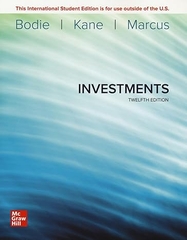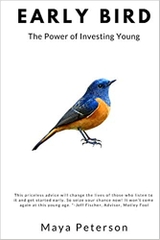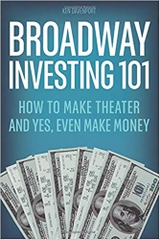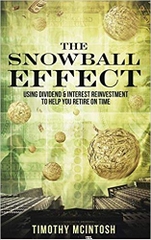-
-
-
Tổng tiền thanh toán:
-
-
Thông tin
-
Tìm sách theo yêu cầu
Two years in MBA school won't teach you how to double the market's return. Two hours with The Little Book That Beats the Market will.
In The Little Book, Joel Greenblatt, Founder and Managing Partner at Gotham Capital (with average annualized returns of 40% for over 20 years), does more than simply set out the basic principles for successful stock market investing. He provides a "magic formula" that is easy to use and makes buying good companies at bargain prices automatic. Though the formula has been extensively tested and is a breakthrough in the academic and professional world, Greenblatt explains it using 6th grade math, plain language and humor. You'll learn how to use this low risk method to beat the market and professional managers by a wide margin. You'll also learn how to view the stock market, why success eludes almost all individual and professional investors, and why the formula will continue to work even after everyone "knows" it.
Product Details
Hardcover: 208 pages
- Publisher: Wiley; 1 edition (September 7, 2010)
- Language: English
- ISBN-10: 0470624159
- ISBN-13: 978-0470624159
- Product Dimensions: 7.1 x 5.3 x 0.8 inches
- Shipping Weight: 9.1 ounces (View shipping rates and policies)
- Average Customer Review: 3.8 out of 5 stars See all reviews (322 customer reviews)
- Amazon Best Sellers Rank: #5,655 in Books (See Top 100 in Books)
- #2 in Books > Business & Money > Investing > Commodities
- #32 in Books > Business & Money > Finance
Editorial Reviews
Amazon.com Review
In 2005, Joel Greenblatt published a book that is already considered one of the classics of finance literature. In The Little Book that Beats the Market—a New York Times bestseller with 300,000 copies in print—Greenblatt explained how investors can outperform the popular market averages by simply and systematically applying a formula that seeks out good businesses when they are available at bargain prices. Now, with a new Introduction and Afterword for 2010, The Little Book that Still Beats the Market updates and expands upon the research findings from the original book. Included are data and analysis covering the recent financial crisis and model performance through the end of 2009. In a straightforward and accessible style, the book explores the basic principles of successful stock market investing and then reveals the author’s time-tested formula that makes buying above average companies at below average prices automatic. Though the formula has been extensively tested and is a breakthrough in the academic and professional world, Greenblatt explains it using 6th grade math, plain language and humor. He shows how to use his method to beat both the market and professional managers by a wide margin. You’ll also learn why success eludes almost all individual and professional investors, and why the formula will continue to work even after everyone “knows” it.

It's been five years since you first published The Little Book That Beats the Market. Have your thoughts changed at all about the effectiveness of value investing?
In my mind, the principles of value investing have not changed. As we've learned yet again, markets can be volatile and emotional. They often go to extremes of pessimism and optimism, and prices can and often do fluctuate wildly and significantly over short periods of time. As a result, Mr. Market can provide some excellent opportunities to purchase bargain priced stocks when people are unduly pessimistic. This is where value investing comes in. Buying companies below their true value is the road to being a successful investor. The magic formula found in the Little Book seeks to buy a group of above average companies but only when they are available at below average prices. Because it is a formula, it seeks to do this in an unemotional way that can take advantage of the market's mood swings. Ben Graham taught us these lessons in the 1930s and the principles still hold as well today as when he first wrote them down more than 70 years ago.
Do you think individual investors should re-think their investment strategy as a result of the recent market crash and recession?
I think the best lesson that can be learned from the recent price drop and partial recovery is that stocks are volatile. For most people, stocks should represent a portion of their investment portfolio because I still believe that over the long term they will provide superior returns relative to most alternative investments. However, whether that portion of an investment portfolio devoted to stock investments should be 40% of an investor's portfolio or 80% is a very individual decision. How much are you willing (or able) to lose before you panic out? There's no sense investing such a large portion of your assets in a long-term strategy if you can't take the pain when your chosen strategy doesn't work out for a period of years. The "magic formula" found in the book can underperform the market for years. It can also lose money if the market goes down. But it is also a strategy that makes a lot of sense and that should work well for investors over the long term.
Can you explain the Magic Formula's basic strategy in one sentence?
The Magic Formula strategy is a long-term investment strategy designed to help investors buy a group of above-average companies but only when they are available at below-average prices.
You make reference in the new afterword to receiving a number of emails from readers after the The Little Book That Beats the Market was published. Could you share with us some of the comments you received?
I received many emails after the first edition of the book was published. Some suggested that the strategy was working great for them while others reported that they had waited over a year and the strategy was underperforming. These results and emails are consistent with the message of the book. Over the five years since the book was published, the strategy earned very nice returns for investors, but the ride was bumpy. Not only did the formula underperform for a period of time, in 2008 it lost money along with the market. Overall, the formula performed quite well but only for those who maintained a true long-term perspective. This is easier said than done. In the new afterword, I try to give more facts, color and information about the strategy that I hope will help investors be successful in taking full advantage of the magic formula over the long term. Of course, I also got plenty of emails where investors just asked us to do it all for them. Other emails asked us to apply the formula internationally. As a result, we have worked on both of these projects over the last several years.
In the new afterword, you write "Beating the market isn't the same thing as making money." Can you elaborate on this and why it's a difficult concept to swallow at times?
Since the strategy involves buying a portfolio that is 100% long the stock market, if the stock market goes down, our portfolio may well go down, too. If the market drops 40% and we beat the market by losing only 38%, this is small consolation. As I say in the afterword, while I firmly believe that for most people an investment in the stock market should represent a substantial portion of your investment portfolio, how big that portion should be can vary widely. For some it can be well over half of assets, for others well less than half might be appropriate. The magic formula strategy is a wonderful strategy for that portion of your portfolio that you choose to invest in the stock market. In fact, I truly believe that the magic formula remains one of your best options. How much to invest in the stock market, however, is a very personal decision that should be partially based on your ability to withstand short-term negative price movements. One encouraging fact, though, discussed in the afterword is the performance of our large cap portfolio over the last decade. Over that period, the market as measured by the S&P 500 was actually down, yet our backtests showed that following the formula over those same ten years would have resulted in a more than tripling of your money. Unfortunately, those great long-term returns came with plenty of bumps, including some not so short periods of losses and underperformance. But once again, if the formula worked every day, every month and every year, everyone would follow it and it would be ruined. Fortunately, it's not so great, and as a result I strongly believe that long-term investors should continue to benefit from the magic formula for many years to come.
While the formula may be simple, understanding why the formula works is the true key to success for investors. The book will take readers on a step-by-step journey so that they can learn the principles of value investing in a way that will provide them with a long term strategy that they can understand and stick with through both good and bad periods for the stock market.
As the Wall Street Journal stated about the original edition, “Mr. Greenblatt…says his goal was to provide advice that, while sophisticated, could be understood and followed by his five children, ages 6 to 15. They are in luck. His ‘Little Book’ is one of the best, clearest guides to value investing out there.”
An Exclusive Q&A with Author Joel Greenblatt

It's been five years since you first published The Little Book That Beats the Market. Have your thoughts changed at all about the effectiveness of value investing?
In my mind, the principles of value investing have not changed. As we've learned yet again, markets can be volatile and emotional. They often go to extremes of pessimism and optimism, and prices can and often do fluctuate wildly and significantly over short periods of time. As a result, Mr. Market can provide some excellent opportunities to purchase bargain priced stocks when people are unduly pessimistic. This is where value investing comes in. Buying companies below their true value is the road to being a successful investor. The magic formula found in the Little Book seeks to buy a group of above average companies but only when they are available at below average prices. Because it is a formula, it seeks to do this in an unemotional way that can take advantage of the market's mood swings. Ben Graham taught us these lessons in the 1930s and the principles still hold as well today as when he first wrote them down more than 70 years ago.
Do you think individual investors should re-think their investment strategy as a result of the recent market crash and recession?
I think the best lesson that can be learned from the recent price drop and partial recovery is that stocks are volatile. For most people, stocks should represent a portion of their investment portfolio because I still believe that over the long term they will provide superior returns relative to most alternative investments. However, whether that portion of an investment portfolio devoted to stock investments should be 40% of an investor's portfolio or 80% is a very individual decision. How much are you willing (or able) to lose before you panic out? There's no sense investing such a large portion of your assets in a long-term strategy if you can't take the pain when your chosen strategy doesn't work out for a period of years. The "magic formula" found in the book can underperform the market for years. It can also lose money if the market goes down. But it is also a strategy that makes a lot of sense and that should work well for investors over the long term.
Can you explain the Magic Formula's basic strategy in one sentence?
The Magic Formula strategy is a long-term investment strategy designed to help investors buy a group of above-average companies but only when they are available at below-average prices.
You make reference in the new afterword to receiving a number of emails from readers after the The Little Book That Beats the Market was published. Could you share with us some of the comments you received?
I received many emails after the first edition of the book was published. Some suggested that the strategy was working great for them while others reported that they had waited over a year and the strategy was underperforming. These results and emails are consistent with the message of the book. Over the five years since the book was published, the strategy earned very nice returns for investors, but the ride was bumpy. Not only did the formula underperform for a period of time, in 2008 it lost money along with the market. Overall, the formula performed quite well but only for those who maintained a true long-term perspective. This is easier said than done. In the new afterword, I try to give more facts, color and information about the strategy that I hope will help investors be successful in taking full advantage of the magic formula over the long term. Of course, I also got plenty of emails where investors just asked us to do it all for them. Other emails asked us to apply the formula internationally. As a result, we have worked on both of these projects over the last several years.
In the new afterword, you write "Beating the market isn't the same thing as making money." Can you elaborate on this and why it's a difficult concept to swallow at times?
Since the strategy involves buying a portfolio that is 100% long the stock market, if the stock market goes down, our portfolio may well go down, too. If the market drops 40% and we beat the market by losing only 38%, this is small consolation. As I say in the afterword, while I firmly believe that for most people an investment in the stock market should represent a substantial portion of your investment portfolio, how big that portion should be can vary widely. For some it can be well over half of assets, for others well less than half might be appropriate. The magic formula strategy is a wonderful strategy for that portion of your portfolio that you choose to invest in the stock market. In fact, I truly believe that the magic formula remains one of your best options. How much to invest in the stock market, however, is a very personal decision that should be partially based on your ability to withstand short-term negative price movements. One encouraging fact, though, discussed in the afterword is the performance of our large cap portfolio over the last decade. Over that period, the market as measured by the S&P 500 was actually down, yet our backtests showed that following the formula over those same ten years would have resulted in a more than tripling of your money. Unfortunately, those great long-term returns came with plenty of bumps, including some not so short periods of losses and underperformance. But once again, if the formula worked every day, every month and every year, everyone would follow it and it would be ruined. Fortunately, it's not so great, and as a result I strongly believe that long-term investors should continue to benefit from the magic formula for many years to come.
From Publishers Weekly
Contrary to efficient-market naysayers, this engaging investment primer contends that ordinary stock-market investors can indeed get better-than-market returns over the long haul. Greenblatt (You Can Be a Stock Market Genius), a Columbia Business School adjunct professor, touts a "value-oriented" approach that looks for bargain stocks whose share price is cheap relative to the company's profitability. His version is a "magic formula" that ranks stocks on the basis of two variables—the earnings yield and the business's return on capital. His Web site, magicformulainvesting.com, virtually automates the procedure for novices. Greenblatt offers lots of statistical proof of the formula's success, but emphasizes the importance of faith in seeing the investor through inevitable short-term downturns: "It will be your belief in the overwhelming logic of the magic formula that will make the formula work for you in the long run." He conveys his ideas through a lucid if rudimentary and rather corny explanation of basic investment concepts about risk, return, interest and business valuation. Although the fabulous returns he touts seem too good to be true, Greenblatt's formula is a reasonable variant of mainstream value-investing methods. Investors seeking a little more hands-on excitement than the average mutual fund offers won't go too far wrong following his advice. (Jan.)
Copyright © Reed Business Information, a division of Reed Elsevier Inc. All rights reserved. --This text refers to an out of print or unavailable edition of this title.
- Link: http://www.amazon.com/Little-Book-Still-Beats-Market/dp/0470624159
Copyright © Reed Business Information, a division of Reed Elsevier Inc. All rights reserved. --This text refers to an out of print or unavailable edition of this title.
XEM THÊM TẠI AMAZON.COM
- Thông tin chi tiết
- Mục lục
- Đọc thử
- Đọc thử
- Đánh giá & bình luận của người mua
- Những cuốn sách cùng chủ đề hoặc có liên quan
Tại web chỉ có một phần nhỏ các đầu sách đang có nên nếu cần tìm sách gì các bạn có thể liên hệ trực tiếp với Thư viện qua Mail, Zalo, Fanpage nhé
Đăng ký nhận tin qua email
Hãy đăng ký ngay hôm nay để nhận được những tin tức cập nhật mới nhất về sản phẩm và các chương trình giảm giá, khuyến mại của chúng tôi.












